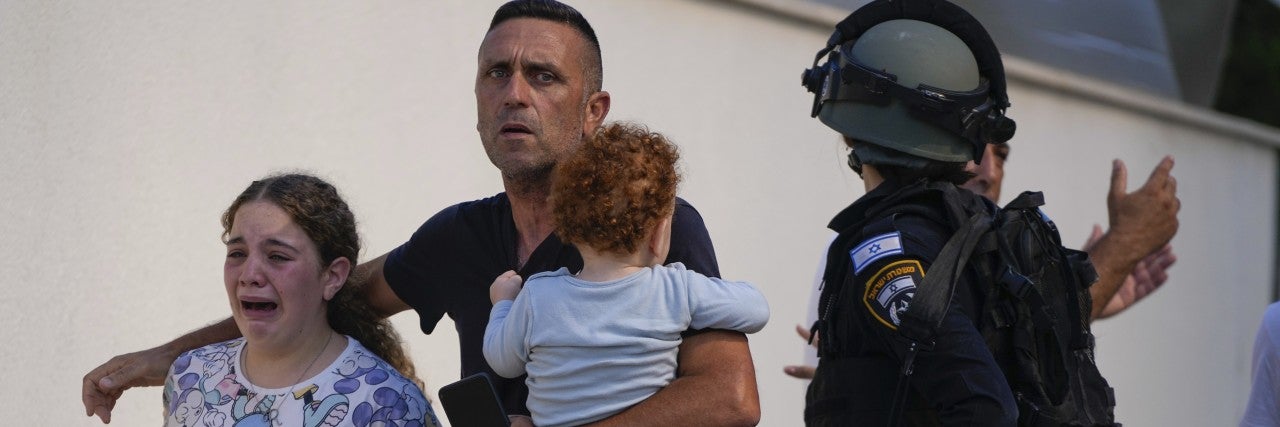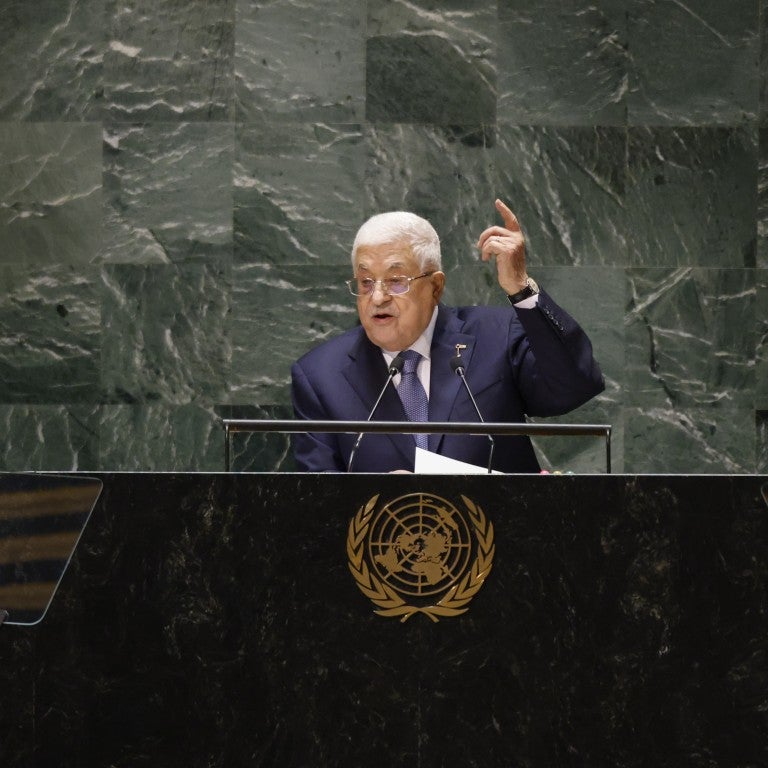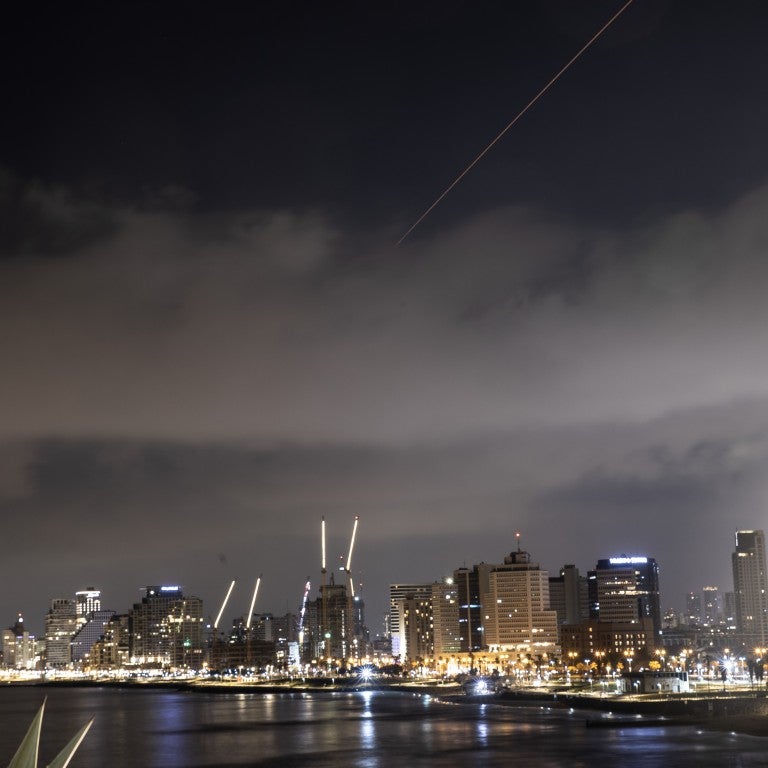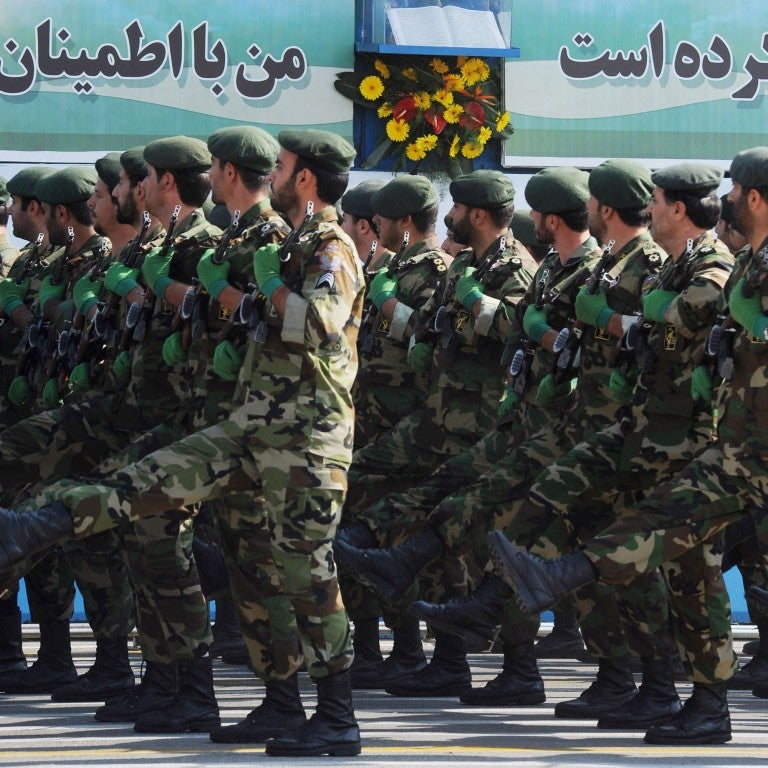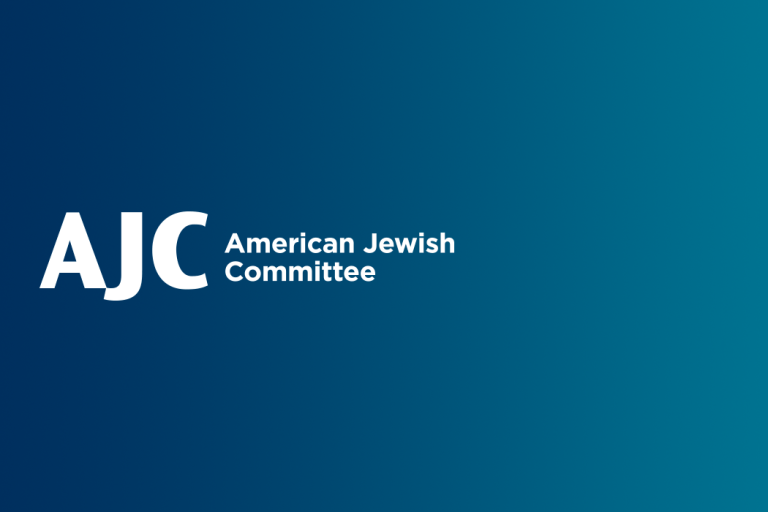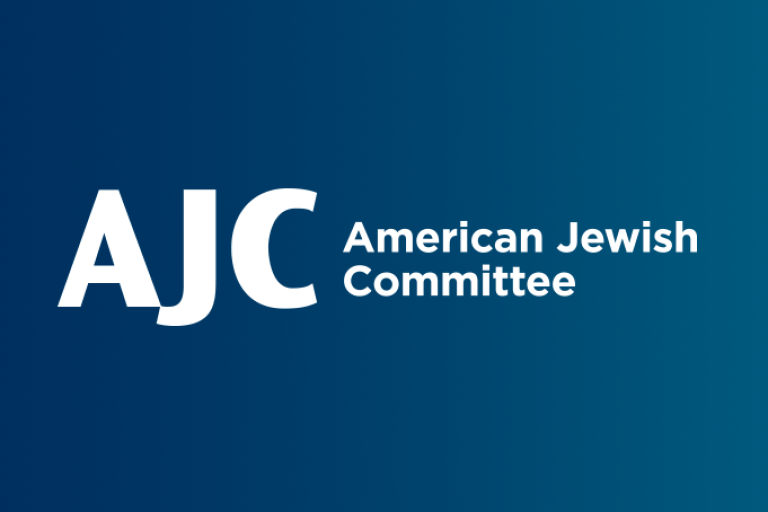October 10, 2023
We’re joined by Yotam Politzer, CEO of IsraAID, to discuss how Israel’s leading international humanitarian organization is responding to the immediate and long-term needs on the ground in the wake of Iran-backed Hamas's barbaric terrorist attack in Israel. Politzer shares how American Jews can step up to support Israelis through this incredibly difficult time.
American Jewish Committee (AJC) has launched an Israel Emergency Campaign to support Israeli relief organizations. Their first grantee will be IsraAID, AJC's longtime partner, which has responded to emergencies worldwide, but never before in Israel. Until now.
*The views and opinions expressed by guests do not necessarily reflect the views or position of AJC.
Episode Lineup:
- (0:40) Yotam Politzer
Show Notes:
Donate:
Learn:
Follow People of the Pod on your favorite podcast app, and learn more at AJC.org/PeopleofthePod
You can reach us at: peopleofthepod@ajc.org
If you’ve appreciated this episode, please be sure to tell your friends, and rate and review us on Apple Podcasts.
Transcript of Interview with Yotam Politzer
Manya Brachear Pashman:
On the morning of October 7th, Hamas, the terror group governing Gaza and backed by Iran’s regime, launched a brutal assault against Israel, invading towns and cities across the southern border aiming to kill as many people as possible and taking more than 100 captives to Gaza. By the time of this recording, the death toll had reached 900. Thousands more are wounded.
In response to this atrocity, American Jewish Committee has launched an Israel Emergency Campaign to support Israeli relief organizations. The first recipient money raised will be AJC’s longtime partner IsraAID, which has responded to emergencies in more than 50 countries around the world, but never before in Israel– until now.
Yotam Polizer, CEO Of IsraAID, joined us in Tel Aviv earlier this summer. He is joining us again now from New York, where he was visiting when the war broke out. While Yotam is unable to return home at the moment due to lack of flights to Israel, he is working hard to coordinate emergency response from here and is with us to discuss the efforts underway. Yotam, welcome back to People of the Pod.
Yotam Politzer:
Thanks for having me.
Manya Brachear Pashman:
It must be so difficult not to be there with your team.
Yotam Politzer:
Thankfully, our headquarters and our emergency response team is already in full speed. So I think it's also important for me to be here for two reasons, one, to coordinate the support, and not less importantly, to communicate to people here, both in the Jewish community and in the general community, what we're seeing and hearing in terms of the humanitarian needs on the ground.
Manya Brachear Pashman:
So what are you hearing from your people on the ground there? What are they reporting?
Yotam Politzer:
I don't think I need to elaborate on the horrors because I think we've all been following the news and saw all the horrific images. But for us, as Israel’s leading international humanitarian organization, we have never had a full-scale humanitarian response in Israel. This is the first time we're actually doing it. And we're doing it because the situation is indeed dire and extreme. The biggest need that we identify right now is related to mental health. And because, of course, we are not a humanitarian organization, we're not involved in the security and the military operation. And of course, there are many needs related to the operation that's going on. From a humanitarian perspective, the whole country is traumatized.
I don't know of a single person who doesn't know anyone who either was murdered or kidnapped or both. And the number of people who have an immediate family member, or neighbor, who was murdered, or unaccounted for and probably kidnapped by Hamas is so high, talking about hundreds of 1000s of people. Specifically, what we consider the most vulnerable are obviously the people who lived on the frontline, the villages, the moshavim, and the kibbutzim surrounding Gaza.
They have lost on average 10-20% of their population in each of these villages. In Kibbutz Be'eri, just an hour ago, it was published that they found 108 bodies– that's probably much more than 10% of the population there. And many more again, are kidnapped. So these communities who suffered the worst atrocities a person could think of are now in different shelters around the country. So supporting them in these shelters in any shape or form is the most important humanitarian mission of our time.
Many of them have been evacuated specifically from this kibbutz to the Dead Sea, to the Dead Sea hotels, because it's one of the safest places in Israel. If God forbid, we will have another frontline on the north border, that's still safe enough for these people. And these hotels are now operating as shelters and evacuation centers. And the government and the local regional council and the hotel owners are currently providing the food and shelter. So there are less needs on that front. But again, when it comes to mental health support for everyone there, this is crucial. So that's what our team has been focusing on.
Manya Brachear Pashman:
You’re also operating what are called Child Safe Spaces, which you describe as “a place for the kids to be kids.” Tell us more about that.
Yotam Politzer:
We can't imagine what these kids went through. And we just want to give them some sense of normalcy. And let them be kids again, and let them play and let them express themselves and let them release their stress and allow their parents or whoever is left from their families a chance to finally maybe get some sleep, try to reorganize, regroup and deal with everything else that they need to deal with. Try to, you know, start thinking about rebuilding their life after these horrors, which again, will obviously take years. So when we look at the humanitarian needs, I think we need to look at the immediate needs. But even more important, we need to understand that there will be long term needs for these people, and for everyone that is related to them. And so as IsraAID it's very important for us to be first on the ground, wherever it is, in Israel, or in anywhere else in the world. In fact, our team who was responding to the earthquake in Morocco, is now on its way back to Israel to join our team that's already responding in Israel. So that's in short.
Manya Brachear Pashman:
In fact, some of the services that you are describing, I believe, you described to me when we spoke earlier this summer, regarding the war in Ukraine, right, many of these similar services were provided there as well, as well as other places around the world. Can you elaborate a little bit about where else around the world you have offered the same services that you're now offering?
Yotam Politzer:
everywhere? I mean, I started my humanitarian career in Japan, again, another developed country, following the earthquake and tsunami in 2011, that killed more than 20,000 people. And they're there, the local government, the local community was very well equipped to support with infrastructure, but they didn't have any kind of emotional mental health support and trauma care. So we actually brought therapists from Sderot, who was working with children who are traumatized in Sderot and develop these models. We brought them to Japan, and we worked with the Syrian refugees with Arabic speaking therapist from Israel. We worked we work in Ukraine in partnership with the First Lady doing mental health and trauma and resilience. And, now we're in Israel. And yes, there are many great professionals doing that in Israel, but many of them were affected. And the level of trauma is so big, that we have to do it in Israel, too.
Manya Brachear Pashman:
So what can people here do Yotam? How can they help? Because there's certainly a feeling of helplessness as we watch these images from abroad.
Yotam Politzer:
Yeah and I totally understand and I think being in a position of doing is very important. Look, I think the two main things to do right now, from here from the other side of the world, which is what I'm trying to do as well, while I'm here, is supporting initiatives like IsraAID, like many other organizations who are responding, and they are great organizations, from Magen David Adom, MDA, that people know, and United Hatzalah, and many are focusing on medical services, some of the hospitals, which is very important.
The other thing, which is very, very important, and I think each and every one of us can do, even if we don't have the financial resources, is to be ambassadors for the people of Israel. And we need it more than ever. And it means to do it in the Jewish community, outside the Jewish community, on social media, in synagogues, in schools, in the supermarket, everywhere, there are so many ways to become ambassadors for Israel. And this is something we can all do using our phone. And, and it's very, very important.
And for the people of Israel, and especially the people who are worst affected. There's so much anger, so much frustration, so much fear, and anxiety. And showing our solidarity, in every shape or form, has a huge mental health impact on Israel. I mean, these pictures of cities, the Eiffel Tower or the Brandenburg Gate. In Kyiv. More than 20 places were displaying the Israeli flag as solidarity. I saw it shared so widely in Israel. I mean, knowing hat we have friends. And a lot of them have a huge impact, not only on the Hasbara, and advocacy, which is important, I'm not against it, but also for the mental health and well being of the people of Israel. So it's very, very important.
What is less helpful at the moment, I'm not against it in general. I don't think we need to send supplies from here to Israel. I know a lot of people want to send supplies, but we can purchase supplies in Israel and support the local economy. And there's also a lot of donations going on or so I think that's less helpful. In terms of volunteers, people who want to go from here to volunteer in Israel, that may be needed in the long run. At this very specific moment. I don't think that's a big need. I think supporting organizations on the ground is more important. If you only have limited resources, rather than paying on a very expensive flight, that may or may not go, I think it's important to support organizations who are on the ground and are based there. But it may be needed in the near future, especially as this become a more long term operation. And then we will need people with specific skills and expertise.
Manya Brachear Pashman:
In terms of the response, what are you seeing that is giving you hope? What are you seeing that is discouraging?
Yotam Politzer:
I see a lot of things that are reassuring. I see the tremendous support we're getting from many, so many. Not all of them are our typical friends. And, you know, whether it's mainstream media or political leaders, political leaders. I also see some people who are not supporting or trying to paint it, you know, try to be diplomatic on both sides. I don't think at the moment that that makes any sense, to be honest. So that is disturbing. But I also don't hear enough focus on humanitarian needs. I mean, again, I'm not I think the political consequences, the security and safety are very important, but the people there and how to help them and what their needs are, are not being highlighted enough.
Because maybe it's less sexy in the news, I mean, we do hear a lot of horror stories, but the people who are alive and survived and lost their loved ones and went through the worst trauma a person could think of are not being highlighted. Also the incredible story of resilience and heroism from so many people. I have seen some of these in the Israeli media, but not enough in the foreign media and not enough on social media here. So I also think we need to celebrate the resilience of the people there that have been the most resilient people before this crisis. But considering what they're going through, we need to celebrate these people, these heroes, these communities, we need to support them in whatever way we can, we need to be there for them. We need to so I don't see enough of that.
Manya Brachear Pashman:
Is there a particular story that comes to mind that you would like to share with our listeners of such heroism?
Yotam Politzer:
There are so many actually, but personally, again, and I've been following this news of so many. So many actually, not one person, hundreds of people who were you know, pulled out their sleeves and went in and pulled out people under fire. And these are people who are not in active duty. And they went in and risked their lives in these first 24 hours and pulled out people and some of them lost their lives who are doing that. I was also very touched by stories of Arab nurses and doctors who came in at even higher percentage than they are, to volunteer and to support in the hospitals. I just heard a story of this woman who was not young. But when terrorists came into her house she was so resilient, and she was able to offer – she was so smart and sharp and resilient. And she was able to offer the Hamas terrorist cookies. And to set them down until her rescuers actually came and were able to rescue her. So you know, it’s unbelievable. Among the horrors, there are so many of these heroism and resilience stories and I think we should talk about them more.
Manya Brachear Pashman:
Yotam, thank you to IsraAID for all you’re doing on the ground. AJC has been so proud to call you a partner and is so grateful that we can rely on you to help us channel our heartbreak, constructively.
Yotam Politzer:
Thank you so much, first of all, and we're so grateful for AJC. For everything we do together, especially now. AJC has supported us in more than 20 countries. So we have never imagined that we will need AJC to support us in Israel. But here we are. So that's number one. Number two, I do think that myself and all of us here in this part of the world have an important role to play to be the voice for the voiceless and to bring more support. Thank you very much.
Manya Brachear Pashman:
In less than 24 hours, AJC’s Israel Emergency Campaign has raised more than one million dollars. 100 percent of which will be distributed to hospitals, trauma centers, and frontline Israeli NGOs starting with IsraAID. If you would like to donate, go to AJC.org/supportisrael.
